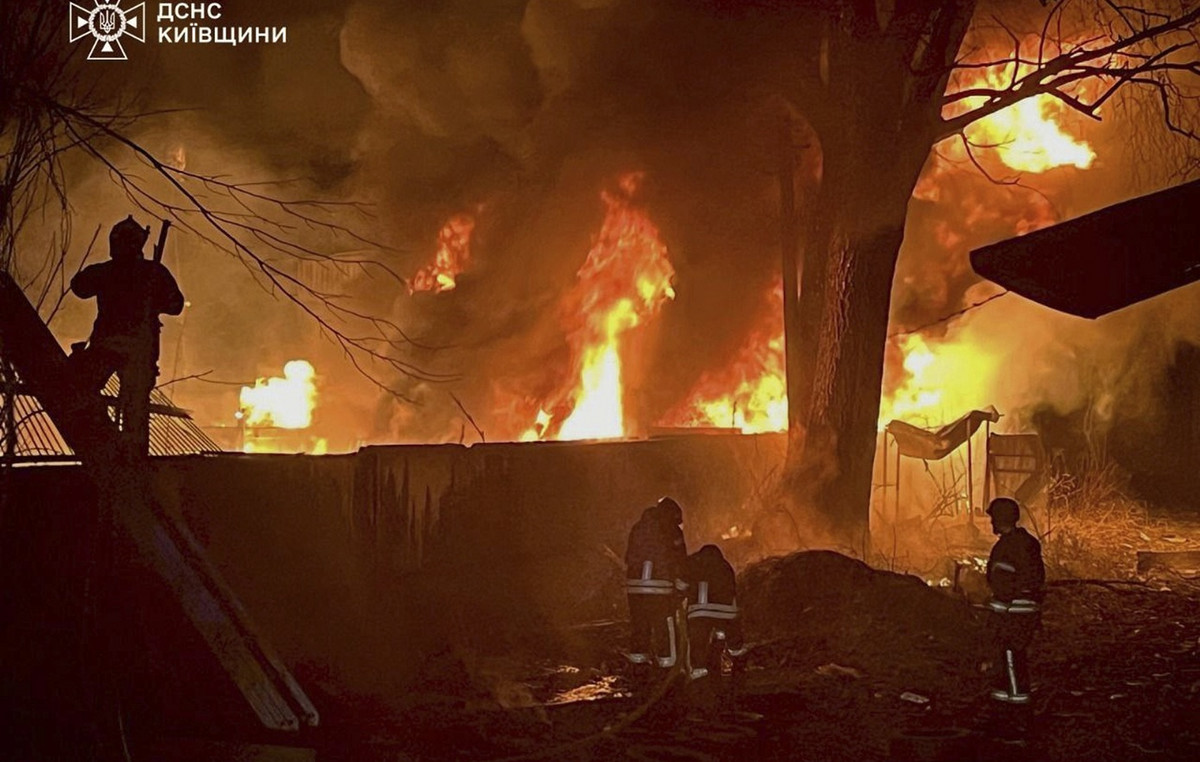Belarus adopted on Friday (19) a new military doctrine that – if approved – would be the first step towards the deployment of nuclear weapons throughout the country.
“The deployment of tactical nuclear weapons on the territory of Belarus is considered an important measure of preventive deterrence for potential adversaries from unleashing armed aggression against the republic,” said Belarusian Defense Minister Viktor Khrenin at a press conference.
Belarus was “forced” to implement the measure, he added.
According to Khrenin, “a separate chapter was created” to describe the course of actions “in case of armed aggression” against the country's allies in the Collective Security Treaty Organization (CSTO) and the Union State.
The CSTO is a Russian-dominated group of six post-Soviet states that, like the North Atlantic Treaty Organization (NATO), requires members to help each other when under attack.
Formed in 2002, the six countries are Russia, Armenia, Kazakhstan, Kyrgyzstan, Tajikistan and Belarus.
The Treaty on the Union State of Belarus and Russia establishes a legal basis for a comprehensive alliance between the two countries.
Khrenin emphasized that the new doctrine demonstrates that Belarus “does not treat any nation as an enemy, regardless of the actions of the governments of those nations.”
The doctrine still requires the approval of the Belarusian People's Assembly, a representative body that works in parallel with the parliament, which will be held in April, according to Russian state media RIA Novosti.
Khrenin said his government's interest lies in “restoring the influence of international security organizations, such as the United Nations (UN), the Organization for Security and Co-operation in Europe (OSCE) and others, and their effective functioning in the prevention and resolution of armed conflicts”.
Belarus “is open to cooperation in the military sphere with any country, including NATO states,” he said, “as long as its aggressive rhetoric against the country is stopped.”
Minsk played a key role in Russia's war in Ukraine. Last June, Russian nuclear warheads were reportedly delivered to Belarus for “deterrence”, according to Russian President Vladimir Putin.
Two months later, while stressing that his country would not become involved in the war, President Alexander Lukashenko warned that he would “immediately respond with everything we have”, including nuclear weapons, if provoked – especially by neighboring NATO countries such as Poland , Lithuania and Latvia.
Baltic states strengthen borders
The move came as neighboring Baltic states signed an agreement to reinforce their borders with Belarus and Russia.
Experts have already told CNN that these countries could be at risk of being invaded by Russia, Belarus's ally, if it managed to isolate them from NATO allies as part of the development of the war between Russia and Ukraine.
In a statement released on Friday (19), the Estonian Ministry of Defense said the country had signed an agreement with Latvia and Lithuania to “build anti-mobility defensive facilities” on the borders with Russia and Belarus that will “ deter and, if necessary, defend against military threats” in the coming years.
The ministry called it “a carefully considered and thoughtful project, the need for which arises from the current security situation.”
The concept of defensive installations includes “prevention and security measures on the ground”, such as “a network of bunkers, support points and distribution lines”, he stated.
“The war between Russia and Ukraine has shown that in addition to equipment, ammunition and manpower, physical defense facilities are also needed on the border to defend Estonia from the first meter,” said Hanno Pevkur, the Minister of Defense of Estonia. Estonia.
The countries' defense ministers also signed “a Letter of Intent for multiple HIMARS rocket launchers, with the aim of creating a framework for the joint use of the weapons system in both peacetime and wartime,” the statement said.
During an interview with state news agency Belta in August last year, Belarusian President Alexander Lukashenko said his country did not “bring nuclear weapons here to scare someone”.
“Nuclear weapons represent a strong deterrent. But these are tactical weapons, not strategic ones. That is why we will use them immediately as soon as aggression is launched against us,” he added.
Source: CNN Brasil
Bruce Belcher is a seasoned author with over 5 years of experience in world news. He writes for online news websites and provides in-depth analysis on the world stock market. Bruce is known for his insightful perspectives and commitment to keeping the public informed.





